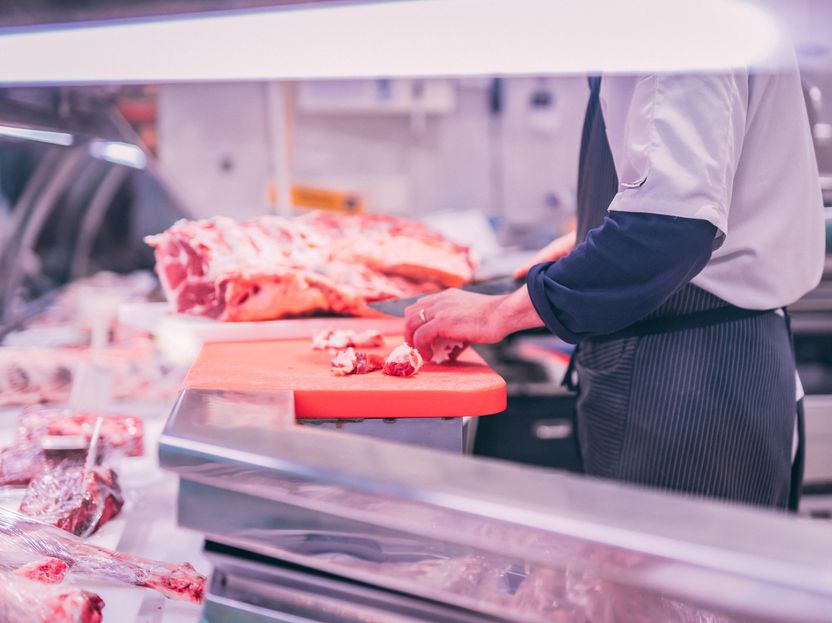No supply shortage feared due to slaughter stop
According to market observers, the temporary closure of Tönnies' largest German slaughterhouse in Rheda-Wiedenbrück will not lead to supply bottlenecks. "Meat will not be in short supply in Germany, not even pork," said Tim Koch of the Agrarmarkt Informations-Gesellschaft in Bonn.

Photo by David Levêque on Unsplash
Koch told the German Press Agency that it will be several weeks before it can be seen whether the shutdown of the meat factory in Rheda-Wiedenbrück, which was ordered after a large corona eruption, will lead to higher prices for consumers. As a rule, the trade had concluded longer-term contracts with slaughter companies for quantities and prices.
At Toennies in Rheda-Wiedenbrueck, there are now 730 registered new infections, according to the district of Guetersloh. Evaluated were 1106 results of a row test ordered by the authorities, which was continued on Thursday. In the Tönnies parent plant, about 5300 employees still have to be tested over the next few days.
In Rheda-Wiedenbrück, 20,000 pigs are slaughtered and cut up per day, according to Tönnies. According to agricultural expert Koch, the industry has a number of adjusting screws to compensate at least partially for the loss of slaughtering capacity at Tönnies. Tönnies wants to increase the number of slaughters at other locations; other companies also have this possibility.
The number of pigs slaughtered in Germany has been falling for some time, but the slaughter capacity has not decreased accordingly, Koch said. He also said that the import of slaughter pigs could be temporarily reduced in order to ease the pressure on German pig farmers.
The standstill in slaughtering in Rheda-Wiedenbrück may cause problems for pig farmers. If a fattener is unable to market his animals within one or two weeks, there could already be difficulties, said Miriam Goldschalt, specialist for animals in agriculture at the German Animal Welfare Association.
"This is all very strictly timed", Goldschalt said. There was a threat of space problems in the stables because new young animals were being delivered and it was not clear where to put the older animals. "At a certain point, the pig loses value as its weight increases," said Goldschalt. One reason is the Germans' preference for lean meat.
A spokesman for the Westphalia-Lippe Agricultural Association also said: "For one or two weeks, the farmers can bridge the situation with relatively low losses. If the closure takes longer, the pig farms will face problems".
If the pigs fattened to a certain target weight became too fat, there was a risk of losses through price deductions.
According to figures from the Federal Statistical Office, 55.1 million pigs were slaughtered in Germany last year, 3.0 percent less than in 2018. 3.3 million of these slaughter pigs were imported from abroad./hff/DP/stk (dpa)
Note: This article has been translated using a computer system without human intervention. LUMITOS offers these automatic translations to present a wider range of current news. Since this article has been translated with automatic translation, it is possible that it contains errors in vocabulary, syntax or grammar. The original article in German can be found here.
Most read news
Other news from the department business & finance

Get the food & beverage industry in your inbox
By submitting this form you agree that LUMITOS AG will send you the newsletter(s) selected above by email. Your data will not be passed on to third parties. Your data will be stored and processed in accordance with our data protection regulations. LUMITOS may contact you by email for the purpose of advertising or market and opinion surveys. You can revoke your consent at any time without giving reasons to LUMITOS AG, Ernst-Augustin-Str. 2, 12489 Berlin, Germany or by e-mail at revoke@lumitos.com with effect for the future. In addition, each email contains a link to unsubscribe from the corresponding newsletter.





























































